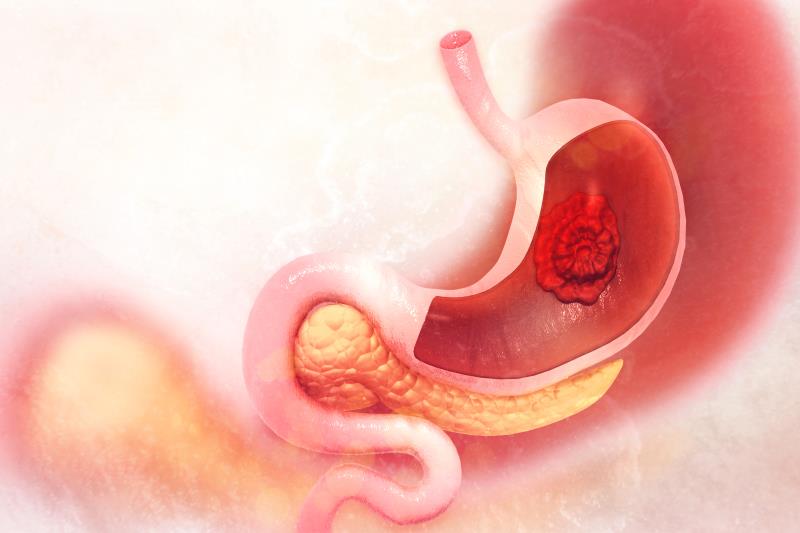
Helicobacter pylori treatment for 2 weeks and vitamin or garlic supplementation for 7 years have significantly lowered the risk of death due to gastric cancer during 22.3 years of follow-up, according to a recent study. H pylori treatment and vitamin supplementation are also associated with a reduced incidence of gastric cancer.
“Because we found no evidence of negative interactions between H pylori treatment and the supplements, it is likely that combinations of these interventions can further reduce gastric cancer incidence and mortality,” the researchers said. “Even though nutritional and garlic supplements could take years to impact on gastric cancer incidence and mortality, they might prove less expensive, safe and robust interventions in the long run.”
From 1995 through 2017, a total of 151 incident cases of gastric cancer and 94 deaths were identified. H pylori treatment conferred a protective effect on gastric cancer incidence for more than 22 years postintervention (odds ratio [OR], 0.48, 95 percent CI, 0.32–0.71). Vitamin supplementation (OR, 0.64, 0.46–0.91), but not garlic supplementation (OR, 0.81, 0.57–1.13), also reduced the incidence of gastric cancer. [BMJ 2019;366:l5016]
All three interventions significantly reduced gastric cancer mortality (fully adjusted hazard ratio [aHR] for H pylori treatment, 0.62, 0.39–0.99; aHR for vitamin supplementation, 0.48, 0.31–0.75; aHR for garlic supplementation, 0.66, 0.43–1.00).
The protective effects of H pylori treatment on both gastric cancer incidence and mortality and of vitamin supplementation on gastric cancer mortality appeared early, but the effects of the latter and of garlic supplementation on gastric incidence only appeared later. Moreover, there were no statistically significant associations found between the interventions and other cancers or cardiovascular disease.
“Although H pylori treatment represents a promising approach to prevention of gastric cancer, it did not eliminate gastric cancer incidence or mortality altogether, and some H pylori strains might become resistant to antibiotics,” the researchers said. “Other preventive modalities such as vitamin and garlic supplementation are of potential value.”
Previous studies have examined the effect of H pylori treatment on gastric cancer, and while it is recognized as a potential strategy for gastric cancer prevention, major considerations need clarification before it can be implemented at the community level, according to the researchers. [Gastroenterology 2005;128:A4; Gastroenterology 2008;134:A233-233; N Engl J Med 2018;378:1085-1095; Nat Rev Gastroenterol Hepatol 2018;15:458-460; J Natl Cancer Inst 2006;98:974-983]
“[B]efore major public health campaigns for gastric cancer prevention are launched … further large-scale intervention trials are warranted to delineate the full range of beneficial and adverse effects of H pylori treatment, to confirm the preventive effects of vitamin and garlic supplementation, and to identify possible risks from nutritional regimens,” the researchers said.
The current blinded randomized placebo-controlled trial included 3,365 residents of a high-risk region in China for gastric cancer. Of these, 2,258 participants seropositive for antibodies to H pylori were randomized to H pylori treatment, vitamin supplementation, garlic supplementation or their placebos, and 1,107 seronegative participants were randomized to vitamin supplementation, garlic supplementation or their placebos.
Those assigned to H pylori treatment received amoxicillin and omeprazole for 2 weeks, and those assigned to supplementation received vitamin C, E and selenium or garlic extract and oil for 7.3 years (1995–2003).